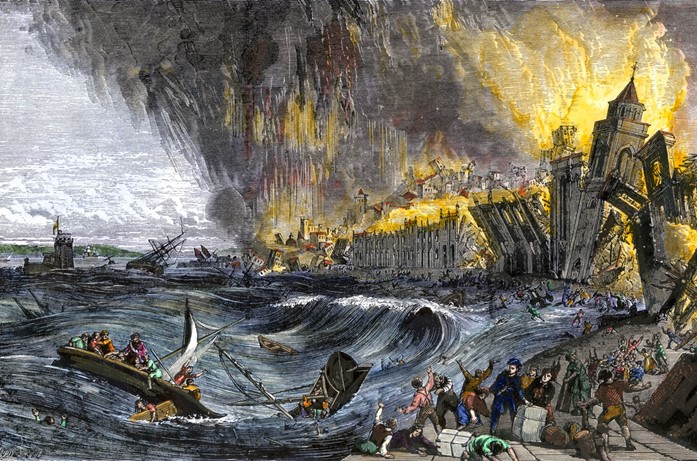Remember, remember the First of November.
Tsunami, earthquake and fire.
All could not see how Lisbon’s ruin
Could still ground faith in a Higher.
1 November 1755 was a devastating day for all of Europe. An earthquake of magnitude 8.5-9.0 came upon the Portuguese capital of Lisbon – at that time a major city in Enlightenment Europe. The earthquake was followed by a massive tsunami and wild fires that brought the proud capital to its feet. It was estimated that 30,000–50,000 people died in Lisbon alone. Those who were alive had to deal with a crippled city – 85% of Lisbon was destroyed.
Yet it wasn’t just the ground of Lisbon that shook – Europe’s ground for faith in a Higher being was severely shaken. To add insult to injury – this disaster happened on All Saints Day.
A day for the faithful to celebrate the ‘communion of Saints’.
A day for the faithful to attend Christian services en masse.
And as it turns out, a day to be buried en masse.
What followed was intense reflection on the problem of evil and the hiddenness of God. How could such a good, all-powerful God allow such natural evils to take place? And on such a day no less! Does he really protect his people? ‘Is the Lord among us or not?’ (Exod 17:7) Is God even there? Or is He hidden?
Safe to say, theological reflections on the hiddenness of God didn’t begin that day. These have been present since the genesis of human existence:
Why didn’t God intervene when the serpent was tempting us?
How could a good God allow for such a global flood?
Why would God allow us to suffer in the desert for forty years?
Why do the wicked live, reach old age, and grow mighty in power?
Why would God allow us to go into exile?
In other words, the people of God have grapple with this for millennia. God’s Word doesn’t ignore the elephant in the room. It refuses to disown the uncomfortable silence of God’s hiddenness:
‘Truly, you are a God who hides himself, O God of Israel, the Savior’ (Isaiah 45:15).
The message of the OT captures both testimonies:
1. God is Savior
2. God hides himself.
Both testimonies must be allowed to speak.
We explore each in turn.[1]
Israel’s primary testimony is God is the Savior who actively intervenes – saving Israel through events such as the Exodus from Egypt and the Conquest of Canaan. People of God pray and God the Savior answers dramatically:
Elijah prays, and fire falls from heaven (1 Kings 18:36–39);
Hezekiah prays, and the Angel kills 185,000 Assyrian soldiers (2 Kings 19:14–35).
Yet also contained within the OT is Israel’s countertestimony: Israel learnt that God is a God who hides himself. In response to the experienced absence of God, God’s people continued to reflect on God and His covenant. When all they had was negativity and uncertainty, these are expressed unabashedly.
Theologian, Walter Brueggemann, writes,
‘The remarkable fact about Israel’s countertestimony is that the disappearance of the active, direct, visible Yahweh in its life did not stop Israel from pondering the character, purpose, and implications of Yahweh. Israel learned, living in the absence of Yahweh’s great interventions, to speak of Yahweh in yet another way.”
Another way captured most acutely in the wisdom literature of the OT. Perhaps most notably in the jarring experience of Job. Job who by God’s own testimony was ‘a blameless and upright man, who fears God and turns away from evil’ (Job 1:8). This upright man couldn’t have felt the hiddenness of God more sharply when he exclaimed, “Behold, I go forward, but he is not there, and backward, but I do not perceive him” (Job 23:8–9).
Yet, while Job’s experience was extreme it certainly wasn’t exclusive to him.
Captured in the prayers of Israel is the deafening silence of God in a world echoing evil, pain and injustice. Through the diverse voices of the Psalms, the people of God learnt to question and even protest to their God in faith:
They asked, how long?
How long, O LORD? Will you forget me forever?
How long will you hide your face from me? (Ps 13:1)
They asked, why?
Why, O LORD, do you stand far away?
Why do you hide yourself in times of trouble? (Ps 10:1)
They asked, where?
Lord, where is your steadfast love of old,
which by your faithfulness you swore to David? (Ps 89:49)
What we find in the OT is that faith is expressed in rich and paradoxical ways. True faith is allergic to escapism and denial while congenial to realism and honesty. It affirms both creedal trust and faithful protest. The OT gives us language not only to trust and obey, but also to doubt and cry out.
And perhaps unexpectedly, to bring one’s doubts and pain to God is an act of faith. Why? Because to bring our negativity to God requires trust that God can handle it – in a way that no one else can.
Job knew this: ‘But I would speak to the Almighty, and I desire to argue my case with God.’ (Job 13:3)
We like things to be neat and manageable. We prefer certainty and timeless principles. But the lived experiences in our community shifts us away from such neat systems: Death descends suddenly taking both young and old. Cancer strikes indiscriminately. Depression seems relentless. Countless prayers go unanswered. Last year, my junior in TTC – still in his early thirties, married with a two-year-old girl and with another one on the way – died of heart attack suddenly while Christmas caroling. He was going to graduate in 6 months to serve as a pastor.
In moments like this, we feel a strong urge to plaster the painful, uneasy situation with quick fixes. But we must be slow to quote Romans 8:28 or Psalm 23. We must instead echo the rich countertestimony contained within Israel’s faith. How long? Why? Where?
[1] What follows references Walter Brueggemann’s ‘Theology of the Old Testament: Testimony, Dispute, Advocacy’, chapters 8-12.


